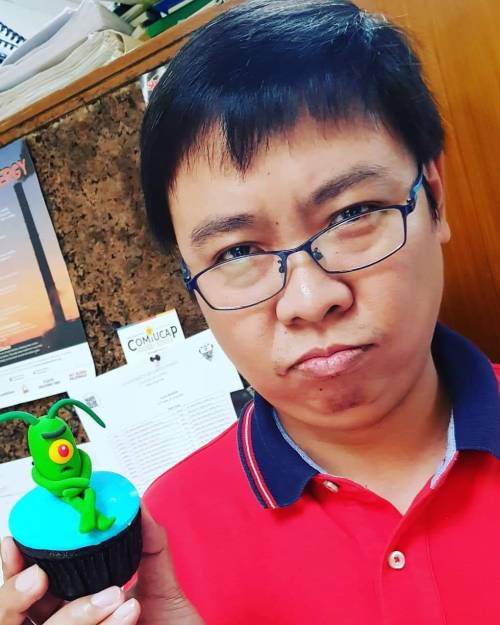Meet Rey Donne Papa, freshwater ecologist1) What do you do? I am a freshwater ecologist and I l
Meet Rey Donne Papa, freshwater ecologist1) What do you do? I am a freshwater ecologist and I lead the Zooplankton Ecology, Systematics and Limnology (ZESL) research group at the University of Santo Tomas (UST). I established this research group in 2011, immediately after I finished my doctoral degree. We conduct research on freshwater microcrustacean zooplankton ecology and systematics and look various aspects of lake ecology, including studies on the biology and ecology of invasive copepods, physical limnology, food web studies, and biodiversity. Our studies have brought us to different freshwater ecosystems throughout the Philippines. We also collaborate with other local and foreign freshwater scientists to conduct studies in other freshwater ecosystems such as lotic environments (streams and rivers) and groundwater habitats. So far, I had been able to help mentor three Ph.D.’s, 18 M.Sc.’s and I think almost (if not more than) a hundred undergraduates since I started advising thesis students. 2) Where do you work? I am currently a Professor at the Department of Biological Sciences in UST. Since January of this year (2020), I am also the Dean of the UST College of Science (at 38, I am the youngest to be appointed to that position so far). I had previously served as chair of the UST Department of Biological Sciences for 2.5 academic years before I assumed the deanship. My first teaching appointment in UST was as a Teaching Assistant right after I finished my college degree in 2002 and rose through the ranks since then. I teach zoology and ecology courses in the undergraduate and graduate levels.3) Tell us about the photos![Left:] Collecting zooplankton in Lake Calibato using a 102 um mesh size plankton net. This is the largest (and most expensive) net we have in our inventory. Since assuming administrative posts, I relish the few times that I can join my students on field work, usually wearing my Panama hat or my flat tweed cap (see photo in Lake Taal), depending on the weather! [Right:] I am well-known in the college for my research on zooplankton, thus, it is not surprising that for my birthdays (I was born October 17, 1981), I usually receive plankton-themed gifts or food. Here is a cupcake with Sheldon Plankton, the infamous villain of SpongeBob SquarePants.4) Tell us about your academic career path so far. Elementary and High School – Marist School, Marikina B.Sc. Biology – University of Santo Tomas (College of Science) M.Sc. in Biological Sciences – UST (cum Laude) Ph.D. in Biological Sciences – UST (cum Laude) (with a 6-month DAAD Sandwich Research Fellowship in the Limnological Institute, University of Konstanz, Germany) Expert-in-Training – Museum and Institute of Zoology, Polish Academy of Sciences, Warsaw, Poland (April - May 2012) Visiting Researcher – Invertebrate Zoology, California Academy of Sciences, USA (June - July 2016) A loyal Tomasino, I have been affiliated with the Department of Biological Sciences of the College of Science, University of Santo Tomas since June 2002 (from Teaching Assistant to Professor). I received my tenure in UST in 2007. I am also affiliated with the UST Research Center for the Natural and Applied Sciences (since 2006) and the UST Graduate School (since 2013).5) Anything else you’d like to share?I hope that more young Filipinos would consider a career in science. We need a critical mass of scientists to cover many uncharted disciplines or sub-disciplines in the sciences. Given the growing number of available government scholarships to pursue science graduate (and undergraduate) degrees, we hope that more individuals get interested in pursuing science careers. As science and national development go together, a scientifically literate society would also be a sure indicator of future economic prosperity for our country.I would also like to emphasize that ALL sciences are important. As such, those who work on the fundamental sciences (such as my field) should be supported in the same way that those working on the applied sciences are supported.Lastly, all good science should be published. I encourage all our undergraduate science students to aim for quality research outputs, which may end up being considered for publication in the future. With proper mentorship from more established scientists, this is not impossible to achieve! Publications are an effective means of checking on the quality of science one has conducted, so good science should always find their way into quality publications. -- source link
Tumblr Blog : pinoyscientists.tumblr.com
#biology#freshwater ecology#zooplankton ecology#lake ecology#zoology

